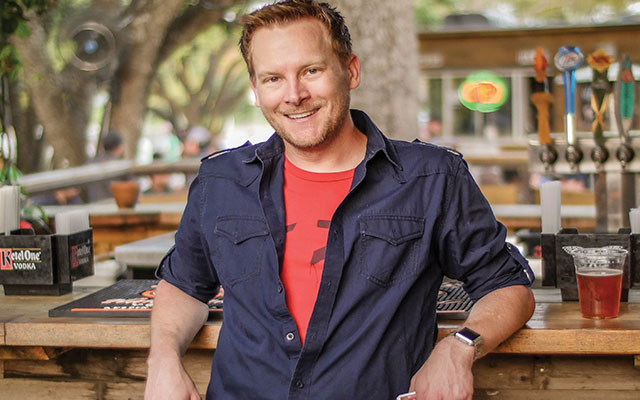Comedian and podcast host Brian Brushwood knows a lot about tricks. He’s been working his magic since receiving a magician’s kit as a child.
His ability to see through a swindle inspired the creation of Discovery.com’s Scam School in which Brushwood teaches the audience an array of street cons, scams, and entertaining tricks.
Scam School’s success led him to hosting and coproducing National Geographic Channel’s Hacking the System video series. Here Brushwood shares helpful and humorous “hacks” gathered from scientists and other specialists.
So whether you need information on creating a compass from a dead cell phone, building a home-security system, or surviving a natural disaster, Brushwood shows you how to have a magic touch of your own.
Here are a few of Brushwood’s best tips, including how to hack your child’s dinner plate to add more veggies.
Experience Life | How did you come up with the ideas for Hacking the System and Scam School?
Brian Brushwood | Scam School was first. Once I started touring colleges, we’d go out to eat after the show. In hundreds of cities nationwide, people loved to show me the one cool bar scam, puzzle, or magic trick they knew. Before I knew it, I had a collection of hundreds of cool simple tricks, perfect to share with folks on the Web.
Hacking the System came from an effort to figure out “What would Scam School look like if it was 100 times bigger?” I started writing down insane, dangerous stuff – explosions, methods used by criminals and identity thieves, and methods of safe cracking. Before I knew it, I was looking at the TV pitch that became Hacking the System.
EL | How has being a magician been useful for you as a “hacker” and as someone who educates people on how to spot a scam?
BB | Magicians are just hackers of a different sort. Instead of taking advantage of programming backdoors, they exploit psychological backdoors, like misdirection, malleable memory, and change blindness. Scam artists do the same thing, only instead of aiming to delight and surprise, they’re looking to steal and swindle.
EL | Some people have argued that there’s a growing “hack everything” culture that, at times, impairs our ability to dedicate ourselves to achieving our goals. What are your thoughts on that?
BB | It depends on how you define “hack.” If you think a hack always means “shortcut” or “easy fix,” then sure: there’s no substitute for hard work to hit your physical goals.
But if you consider a hack to be an effective, counterintuitive strategy to yield better results, then there’s no shortage of amazing hacks to help you hit your fitness goals.
Take the work of behavioral economists, who have discovered that you can trick yourself into working out more often and for longer stretches by listening to audiobooks. Or extraordinary diets like Dr. Joel Fuhrman’s “Eat to Live” plan, where the more you eat the more weight you lose.
With the increasing quality of body metrics available from devices like the Apple Watch, I suspect we’re only seeing the beginning of a body-hacking explosion.
EL | What hacks do you use that help you take care of your — and your family’s health — eat better, or get you to the gym for a workout?
BB | When you’re preparing meals for your kids, try an old salesman’s tactic: the “yes or yes” close. “Hey kids! Which veggie would you prefer with your hamburgers tonight: steamed broccoli or Brussels sprouts?” “Hey gang — which activity are we doing: a family bike ride or a walk to the playground?”
We’ve also set family goals, and kept them written and posted where we can see them every day. Oh, and never underestimate the power of badges and awards. Kids (and most adults) will work like crazy for the chance to get that “Achievement Unlocked” feeling.
Keep up with Brian at www.shwood.com, on Twitter @Shwood, and on Instagram @scamschoolbrian.


This Post Has 0 Comments